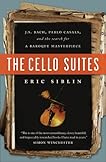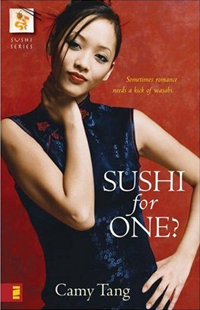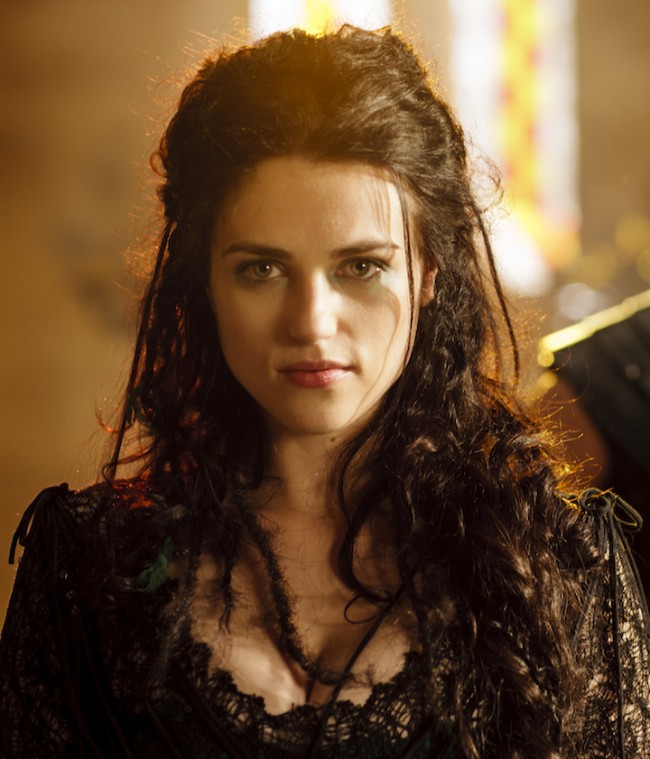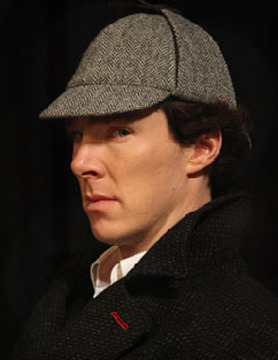
Hello Readers!
I am so thrilled to have my first ever author interview here on this old blog. Nina Benneton, author of the fresh and sassy new take on the
Pride and Prejudice story,
Compulsively Mr. Darcy published by Sourcebooks. I don't want to give too much of the plot away here because I think it will be as a delightful surprise to you other P and P lovers as it was to me. Part of the delight was seeing how Nina Benneton took a tale as old as time and oft re-told in numerous settings, eras and cultures and made it wholly her own. I was so pleased that Nina took the time to speak to some of my thoughts on this exciting new addition to the genre. Scroll down to read some of Nina's insights into the writing process and why she was able to transplant our beloved characters into a completely new fictional sphere due to her passion for the source material and her penchant for fresh characterization!
Rachel:
There seems to be an enduring universal passion when it comes to revisiting the world of Pride and Prejudice in both Historical fiction and Contemporary re-tellings like yours. Why do you think this particular Austen novel is the most popular when it comes to re-imagination?
Nina Benneton:
Mr. Darcy and Elizabeth Bennet. Both are flawed yet relatable characters. Flawed because both have varying degrees of pride and prejudice in them. Relatable because these are the two flaws we like the least in ourselves, yet we know they're there inside us. If one considers Pride and Prejudice as simply a Literary novel, then the deep navel-contemplation by the characters about their flaws throughout the novel satisfies. If one considers this novel purely a Women's Fiction, then Elizabeth truly grew at the end to see how wrong she was to judge a bad man favorable by a pleasant countenance and gentleman-like manners, and a good man unfavorable because he appeared proud and haughty. If one considers it a Romance, what makes it so satisfying for a romance reader is how both hero and heroine overcame and grew through their pride and prejudice to a gratifying, believable happily ever after.
A writer in any one of these three genre examples (I'm certain others can come up with more genres) can undertake the re-telling in any way they wish because these character flaws are so great to tap into as seeds for character development.
In many ways, of all Jane Austen's novels, Persuasion comes closest to my definition as a romance. I feel Wentworth's letter to Anne was one of the most romantic thing that Jane Austen ever wrote. But Anne and Wentworth's flaws—whatever they are— are not as easily accessible or relatable to me as a writer. She's a bit of a saint, and his only fault is that his heart was still too-broken years later. (Even after more than a couple of decades of reading, that's still my shallow impression). Personally, I'd rather have Anne and Wentworth as neighbors and close friends than Darcy and Elizabeth, but I don't choose my friends for their flaws. On the other hand, as a writer, I choose my characters for their flaws.
So, to answer your question as to why Pride and Prejudice is the most popular when it comes to re-imagination, I believe it's because readers and writers relate very well to Elizabeth's and Darcy's flaws.
Rachel:
There are several ways to re-tell Darcy and Elizabeth's story and I have to admit, Compulsively Mr. Darcy was the most original I have read thus far ( and I have read many, fan that I am!) What led you to explore the characters in this particular way?
Nina Benneton:
Oooh. A fellow fanatic! How lovely.
'Most original'? Thank you.
I started with Darcy characterization. From my reading of many of these retellings, there's a consistent motif of our hero's characterization: that he is haughty, arrogant and prideful, and then he learns his lesson at strong Elizabeth's feet and becomes a better man. As a reader, I love this faithful and familiar theme of growth in a hero. Take the haughty and arrogant man down to his knees. Yeah! How satisfying.
As a writer, I needed more. I wasn't interested in traveling down that well-trodden path where other writers, writers with more skills than I, have beautifully and masterfully explored.
I asked 'why' was he like that? Why was he haughty, arrogant, prideful? I reread and reread Pride and Prejudice.
Darcy's a man who liked to be in control.Control of himself and of others. Hmm. So what? Nothing wrong with that. All romance heroes, the alpha kind, need to be in control.
My mind brainstormed. What if his control issue is really from a neurotic need to have it be so? A neurotic with obsessive-compulsive-disorder (OCD) who needs to have it be so. An OCD who needs it to be so because otherwise he'd feel unsafe? Yes!This was an original enough twist that I knew it would work to keep my interest as a writer.
Elizabeth's characterization was harder to tap into. She's usually depicted in re-tellings as a strong, take-no-prison heroine, and, again, as a reader, I love this portrayal.
I wanted something in this vein, yet with some original twist. I reread and reread Pride and Prejudice, and what stood out for me was her tendency to make snap judgment of people based on the exterior. She wasn't a shallow person, but she's so convinced she's right in her initial impression of people that it's a turning point for her to acknowledge she's not as insightful as she thinks she is.
Brainstorm time. What if my heroine Elizabeth's snap judgment comes from an inborn impulsivity? Since I knew I wanted her hometown to be Berkeley, California, I made her a liberal, Berkeley granola girl who simply wants to save the world—in that wonderful, audacious way that Berkeley-born-and-raised natives are reared to feel empowered to do.
Don Quixote is one of my favorite novels and a novel I reread often. I infused humor into Elizabeth by making her an impulsive, quixotic Berkeley native bent on saving the world. Like Don Quixote, she wants to charge at windmills. Perfect. It's this quixotic quality in her that cracks my hero Darcy's shell and effects a change in him.
Now, I have a unique pair that I could work with.
Rachel:
It is obvious that you are as passionate about Pride and Prejudice as the rest of us! What was your first experience with the novel and has it influenced your writing beyond Compulsively Mr. Darcy?
Nina Benneton:
My first experience with Pride and Prejudice was in school. As a fourteen-year-old girl, I was enthralled with how funny Mrs. Bennet was with her theatrics and how much she resembled many of the women in my family. I thought Elizabeth should have ended up with Wickham (aghast!) or Bingley, because Mr. Darcy was just too much work. Blech. Who'd want a boyfriend that complex. He didn't seem to be a bundle of joy to be mated with for life.
Maturity and wisdom came years later, after I've gone through a few Wickhams and Bingleys in my life and was bored. Simply bored. When I stumbled into some re-imaginings and re-tellings of Pride and Prejudice, I began to look at the novel differently. It became a romance for me.
My shallow impression of the novel as a young girl influences my writing now. I, like Elizabeth, learned that I'm not always as smart as I think I am. I'm often wrong about people. Yet, I love that. I love discovering different aspects, hidden depths, strange quirks in people whom I've stereotyped in a blink of an eye.
A reviewer recently wrote in her review blog that, on reading the description of Darcy as an OCD, she was leery of the affliction ruling him, and the story would not be romantic. She was happy she was wrong. He is a man with OCD, but he is not defined by it. I love that. I love to surprise readers. Give them something unexpected between the pages. From the word OCD—one might make a snap judgment that it would be a dark portrayal of a hero's neurosis, but it's not. It's a very human and tender and funny portrayal of a man who just happens to be afflicted with OCD.
People are so much more than their afflictions.
Rachel:
The Vietnamese setting of the novel ---and the well-researched action at the orphanage and the hospital, as well as the local flavour, is a spicy, sassy, exotic and throughly unique setting when held up against other Jane Austen "pastiches." What inspired you to set the novel here?
Nina Benneton:
The exotic setting came to me because I was reading some old tabloid issues where Brad and Angelina had just adopted a Vietnamese orphan. I had some familiarity with Vietnam and adoption, and it tickled my funny bone. I had very good idea how the locals would have reacted to Brad and Angelina —a la Mrs. Bennet upon hearing Netherfield being leased by Bingley. Da Nang, Vietnam as Hertfordshire. Perfect.
This setting was original enough to start the novel and to challenge me as a writer.
Yet, I didn't want it to be a travelogue story. I wanted the setting to be organic to the story line but not overtake it. What worked in my favor was it had been some years since I last visited Da Nang, so all that was left in my memory was an emotional geography of the place, but not the guidebook details. I actually had to hit travel books and read some descriptions for research, but quite honestly, I had a migraine headache almost the entire visit (Darcy suffers from migraines in the story) so the landscape, where things were located etc… were all a blur. My weakness is that I'm the kind of person who has to be alerted to the mountain range right in front of me, for I'm always too busy trying to listen to conversations around me. In the end, I focused more on the cultural aspects of the setting.
Though Compulsively Mr. Darcy isn't about cultural clash, you might say the inherent humor when cultures collide appeals to me as a writer. The second novel I wrote after this one was about an South Asian Indian grandmother and her struggle to accept her orphan granddaughter's love for a blue-eyed American cattle rancher and a recycling magnate (both untouchable jobs).
Rachel:
The initial misunderstanding between Elizabeth and Darcy strays far beyond the first impressions of behavior and attitude we find in the book. Can you speak to your decision to have Elizabeth perceive Darcy's relationship with Bingley as she does?
Nina Benneton:
An irreverent story needs to have a bit of a farce to it, I think, and thus the comic potential of such a misunderstanding appealed to me. Though, at first, I did hesitate to use this angle, for I was fearful of being perceived as unPC. But, you can't write 'honest and funny' if you're fearful.
Elizabeth is a Berkeley native. I spent years at Berkeley, and this is where my heart is, always. And because I love it, I want/need to make fun of its quirks. To a liberal Berkeley girl, it's just a normal thing for two guys to show up together and to immediately peg them as a gay couple.
Though I made fun of every one of my characters, main or secondary, I really didn't have an agenda to put forth. That would be authorial intrusion. I simply wanted to entertain my readers for a few hours of reading the book. Yet, I was sensitive to the fact that what's funny to me may not be perceived as such. I chose as my trusted readers people from a wide range of interests and philosophies and bent, especially those with different viewpoints than mine, to hold me accountable and check me if they feel I'd intruded myself into the story in some way.
Rachel:
Your Dr. Elizabeth Bennet is the prototype of a modern literary heroine: intellectual, independent and very much a career woman. How do you think the original Elizabeth Bennet set the stage for her fictional descendants?
Nina Benneton:
I think the original Elizabeth Bennet did what many of us might not do—turn down a proposal from a rich man and a life of ease, when, at that time, marrying well was the only viable option for a woman of her genteel means.
At fourteen, when I first read Pride and Prejudice, I was coming from a place in life where I was feeling acutely the lack of material comfort, and, honestly, I thought Elizabeth was a bit of a fool to turn down an estate full of servants. (Remember, I didn't think much of Mr. Darcy, then). Teenagers tend to be very materialistic, and I was no exception.
The deeper I research the mores of Regency time, the more I'm in awe of Jane Austen's Elizabeth Bennet. She refused his marriage proposal because she wanted to respect her partner, and vice versa. Denial on principal is something that we all think we would do, but we often very humanly fall short.
By that refusal of Darcy's first marriage proposal, she set the stage for heroines ever since. How heady is it to turn down a man with ten thousand pounds and Pemberley on principal?
Rachel:
In preparing to tell Elizabeth and Darcy's story in a modern context, did you refer to any other re-tellings of the book; or strictly to the source material?
Nina Benneton:
If I'd relied strictly on source material, I think I would not have been so bold in my attempt to write a modern myself. I'm not that talented or audacious.
I enjoyed Sara Angelini's The Trials of Honorable F. Darcy interpretation, and the fact that she didn't faithfully follow the original in the plot or minutia made me see it's possible.
When you write a modern retelling, it's very freeing in many ways because you have more leeway in character interpretations and plot. Two hundred years ought to have effected some changes. Darcy and Elizabeth and company should have evolved to fit their modern time, though still retain enough of the essentials of the originals to resonate with readers.
Yet, in many ways, it's very hard because you now do not have a rigid set of Regency rules and boundaries to keep you contained as a writer. You have to world-build and create a believable modern imitation, and that can be a daunting challenge.
Rachel:
Can we anticipate other revisions of Jane Austen stories penned by you in the future? What other book would you like to find a modern home for?
Nina Benneton:
I'm editing a Pride and Prejdudice Regency Romantic Suspense novel that I've completed six months ago. (Simply because I wanted to explore Regency boundaries and then break them.)
I'm letting rest a non-Jane Austen contemporary romantic comedy I've finished two months ago before I tackle revision in a couple of months.
I'm currently writing a time travel, haven't decided whether it would be a Jane Austen or not, since…ahem…I tend to tackle strange twists to characterizations and plots, and I may hit it too much out of the Jane Austen realm.
As to modern home for other Jane Austen books (this is from the top of my head!)
I'd love to tackle a modern Mansfield Park. Fanny as a foster child to the Bertram family. Think of the fun we could have with a modern Mrs. Norris and Dr. Grant. I love Jane Austen's secondary characters.
Northanger Abbey. Catherine Moreland as a girl from the project invited to an exclusive gated community called Northanger Abbey.
Emma as a stagemom-handler to a young actress Harriet Smith.
AUTHOR BIO: Nina Benneton was on her way to save the world and earn a Nobel Prize in something, anything, when her own Mr. Darcy and a bevy of beautiful children interrupted her plans. She woke up one day and saw she was too obsessive about alphabetizing her spices and searching for stray Barbie shoes. She turned to writing. Her debut novel,
Compulsively Mr. Darcy, earned a Best Book review from Long and Short Review, 'Hands down…a must read for lovers and fans of classic romance.' Fresh Fiction Review called it a 'tenderly written novel.' Publishers Weekly wrote, 'Die-hard fans of everything Austen will enjoy this update of her classic tale.'
There are several ways to connect with Nina on the 'Net!
Find her on her
website/blog
Find her on
facebook
Find her on
twitter
This Valentine's Day, why not treat yourself to the ULTIMATE romance?--grab a copy of
Compulsively Mr. Darcy:
Goodreads
Barnes and Noble
I would like to thank Sourcebooks for the review copy and for the opportunity to interview this exciting author!
 There’s nothing quite like a re-imagining of the Book of the Ruth; which readers of this blog know is my favourite Bible story. These past few years, we were doled out a remarkable reconstruction of the tale with Liz Curtis Higgs’ Here Burns My Candle and Mine is the Night, which, you’ll remember, I absolutely loved.
There’s nothing quite like a re-imagining of the Book of the Ruth; which readers of this blog know is my favourite Bible story. These past few years, we were doled out a remarkable reconstruction of the tale with Liz Curtis Higgs’ Here Burns My Candle and Mine is the Night, which, you’ll remember, I absolutely loved.































